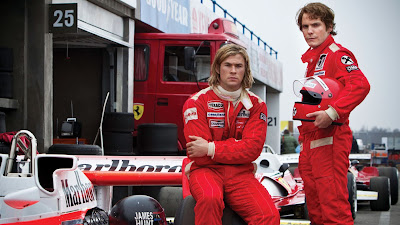Superman can be a tricky character to nail.
Noble, handsome and omnipotent to the point of being near flawless, the
character harks back to a time (1938, to be precise) when superheroes were the
stuff of novelty and comic book readers would lap up pedestrian displays of
superhuman strength and pompous monologues ripe with selfless heroism. But now
we live in an age where lifting heavy objects no longer qualifies as pulse
raising entertainment, with audiences liking their superheroes to be conflicted,
prone to error as they are to the occasional quip and, crucially, a bit more
human. Like Batman, basically.

Which makes Warner Bros’ decision to hire
Christopher Nolan, hot off his acclaimed Dark
Knight trilogy, as a producer to shepherd Man of Steel into the 21st century entirely logical
(despite being released in 2006, Bryan Singer’s maligned Superman Returns shared its DNA with the Donner/Reeve flicks from
the late 70s, early 80s). Zack Snyder taking the director’s chair also made
sense, as he’s had his fair share of experience handling comic book properties
like 300 and Watchmen. Throw in a heavyweight cast of Oscar-nominees and you’re
onto what Hollywood execs like to call “a sure thing”.
However, anyone who has learnt not to be fooled
by a film’s line-up and marketing campaign will know better than to walk into Man of Steel thinking that, like its
central hero, it’s going to be bulletproof. In fact, the movie does come with
its fair share of flaws, some of which prove more detrimental than others.
The most glaring one that comes to mind is
that, in a clear attempt to emulate Nolan’s success with the Batman franchise, MOS strips the character of all Golden
Age nostalgia and emerges instead as, yes, a much darker and grittier film,
with Superman even sinking among a sea of human skulls at one point. That’s not
to say we should get a 2 hour film of Clark Kent picking daisies, but in terms
and style and tone it is a bit of a departure from the source material. The
similarities to Batman Begins are
further accentuated by the film’s re-shuffled narrative structure, as we bounce
back and forth between Clark’s troubled childhood and his present day
quandaries.
Another serious issue with the film is pace. Given
Kal-El’s (the official name on Supes’ birth certificate) otherworldly origins,
a sizeable chunk of the running time is spent on clunky exposition on Kryptonian
history, politics and technology. Clearly this is screenwriter David S. Goyer’s
way of showing he’s committed to the comic book's mythology, but surely he could’ve
skimped on some of the details. And to those of you who thought that Transformers didn’t know when to end an
action scene, you might want to bring a stopwatch and some ear plugs, ‘cause it
seems like Zack Snyder is out to prove he can direct the longest, LOUDEST and
most bombastic set-piece we’ve seen in a blockbuster for a while (seriously,
never has so much abuse been inflicted on a metropolitan skyline). You might
think it looks brilliant on paper, but the end result is surprisingly
exhausting to watch. Perhaps these were the moments where Nolan’s sensibilities
as a director would’ve come in handy and Snyder could’ve been reined in a bit
more.
 But despite its shortcomings, there are
elements of brilliance in Man of Steel
that are worthy of mention, such as Hans Zimmer’s epic score that brings the
flight sequences to vibrant life, or the genius casting of Russell Crowe and
Kevin Costner as the hero’s father figures. But the aspect of the character
that is handled the best is the humans’ reaction to Superman’s existence. In
the original Richard Donner film Lois Lane didn’t bat an eyelid when he
revealed he was from another planet. In MOS,
the world is understandably shaken by the sudden realization that a humanoid
alien with godlike powers is walking among them, their wariness and paranoia
completely justified. Superman’s relationship with Lois also gets an interesting
retooling, the two sharing a delicate and believable trust before any romance
blossoms.
But despite its shortcomings, there are
elements of brilliance in Man of Steel
that are worthy of mention, such as Hans Zimmer’s epic score that brings the
flight sequences to vibrant life, or the genius casting of Russell Crowe and
Kevin Costner as the hero’s father figures. But the aspect of the character
that is handled the best is the humans’ reaction to Superman’s existence. In
the original Richard Donner film Lois Lane didn’t bat an eyelid when he
revealed he was from another planet. In MOS,
the world is understandably shaken by the sudden realization that a humanoid
alien with godlike powers is walking among them, their wariness and paranoia
completely justified. Superman’s relationship with Lois also gets an interesting
retooling, the two sharing a delicate and believable trust before any romance
blossoms.
As for the big blue boy scout himself, relative newcomer Henry
Cavill turns in a likeable, if uneven performance. He pulls off the look
effortlessly and gets to show range in a couple of scenes, but lacks both the innate
charisma that Christopher Reeve displayed in his first outing back in 1978 and the gravitas a leading actor requires to carry a movie. Nevertheless, there’s enough work
on display to suggest that, should he be back for a sequel (and early box
office reports seem to indicate just that), he will grow into his star-making
role.
As a device to repackage DC’s oldest property and mainstream him into the 21st century, Man of Steel is a success. As a
fully-rounded film in its own right, it is undeniably flawed. You could say
that what we’re left with is not the Superman film we deserve, but the one we
need right now. So here’s a challenge, Warner Bros: how about trying to make a
sequel that is actually lighter than the origin story?
3/5

































